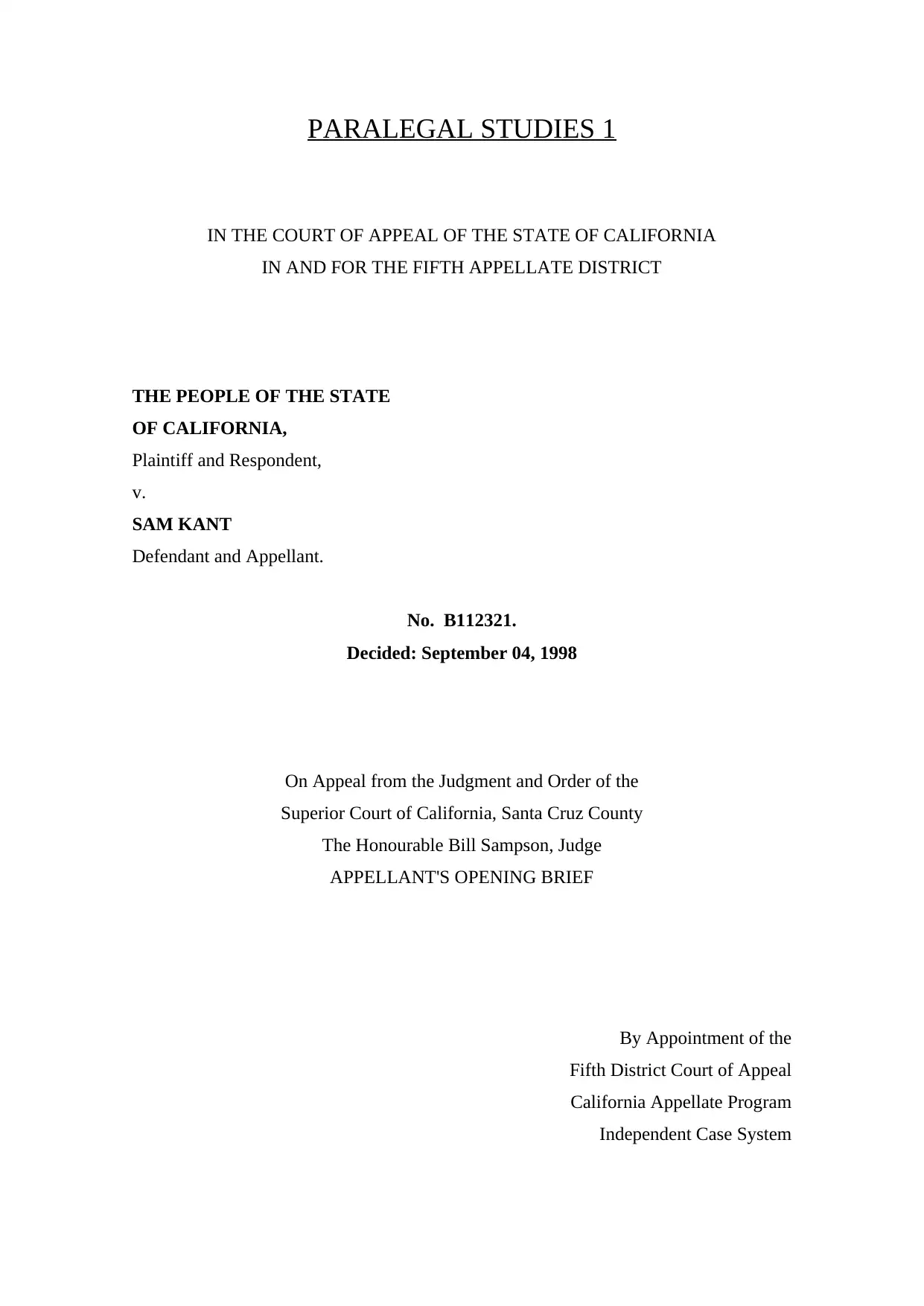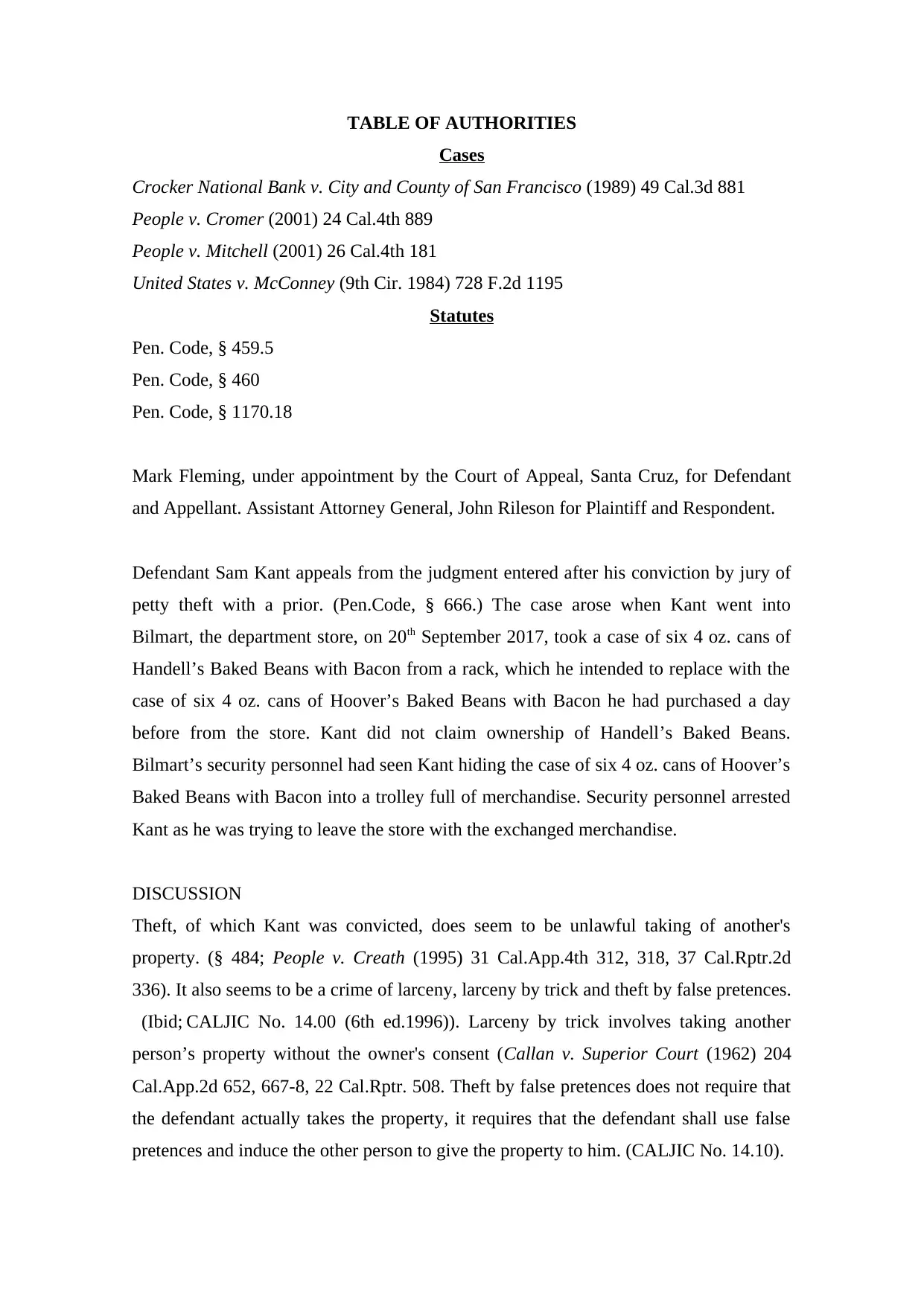Analyzing a Theft Case
VerifiedAdded on 2020/04/13
|3
|612
|36
AI Summary
This assignment examines the appeal of Sam Kant, convicted of petty theft. Kant argued he did not commit theft because he intended to exchange stolen goods with purchased goods and had already paid for the latter. The analysis delves into relevant legal definitions of theft, larceny, and theft by false pretenses, applying them to Kant's case. The summary evaluates Kant's legal arguments and explores their potential success.
Contribute Materials
Your contribution can guide someone’s learning journey. Share your
documents today.
1 out of 3
![[object Object]](/_next/static/media/star-bottom.7253800d.svg)


